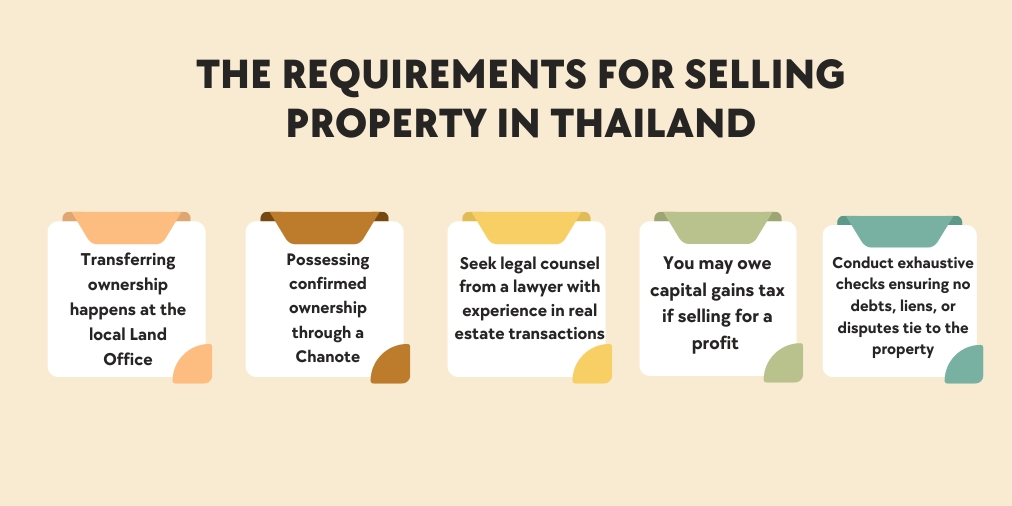Call us now:

Learn more about property taxes in Thailand
Property taxes in Thailand support significantly public services and developing infrastructures, a key landscape fiscal of the country. Whether seasoned an investor or a first-time buyer, grasping fundamentals of the system essential proves for smooth and informed journeys investments. Complex sentences interspersed with shorter ones help demonstrate an understanding of varied structures, improving flow.
Table of Contents
What are the property taxes ?
Property owners in Thailand face an assortment of taxes tied to their holdings. Here are the leading property taxes :
- Land and House Tax: Rates for this tax, imposed on land and buildings like homes, shops and factories, fluctuate based on use and assessed worth – typically ranging from 0.01% to 2% of appraised value.
- Local Development Tax: Intended to finance infrastructure and services locally, this tax’s rates differ by province but commonly hover between 0.25% to 0.95% of a property’s value.
- Specific Business Tax: Those engaged in real estate trading who sell a property within five years must pay a 3.3% levy on the higher of registered or appraised price.
- Withholding Tax: When an owner transfers a property, they’re bound to retain a percentage of the sale amount as tax, contingent on ownership length and seller status – it ranges from 0% to 5% for people and 1% to 3% for firms.
Naturally, the precise taxes and their rates can change over time. So consulting legal advisors in Bangkok or accessing updated information is wise to stay compliant under Thailand’s property taxes laws.
Additionally, property holders may face other fees tied to ownership – like transfer charges, stamp duties and local authority assessments separate from the property taxes listed above. All such costs depend on particulars of location and circumstance.
What are the property taxes for foreigners ?
While the tax rates themselves apply equally, ownership rules differ. Foreigners can face restrictions on certain types of properties like land
Property taxes in Thailand are generally uniform for both Thais and foreigners domiciled in Thailand. The same levies apply regardless of citizenship. However, nationality can impact eligibility to buy specific property classes. Outright foreign ownership of land parcels is usually prohibited under Thai law. Condominium units are an exception if meeting ownership quotas and other criteria.
No distinct tax rates exclusively govern foreigners. But non-Thais must follow additional regulations on property rights. Most properties have limits on foreign ownership stakes, such as the 49% ceiling for units in condominium developments. Compliance with these criteria is needed to legally hold property.
Those considering real estate purchases need to familiarize themselves with rules for foreigners. Both land and housing may have restrictions based on the owner’s nationality.
What are the requirements for selling property in Thailand ?
To sell land or a home in Thailand, whether a native Thai or foreigner, several steps must be followed and conditions met. Here are the general rules for property sales in Thailand:
- Possessing confirmed ownership through a Chanote is essential. This title deed proves you own what’s being sold.
- Seek legal counsel from a lawyer with experience in real estate transactions. They can navigate the process, verify ownership status, draft paperwork, and facilitate a smooth, lawful sale.
- Conduct exhaustive checks ensuring no debts, liens, or disputes tie to the property. Confirm nothing like mortgages or claims could obstruct the sale. Your attorney drafts the sale contract, outlining price, payment terms, special agreements between buyer and seller.
- Transferring ownership happens at the local Land Office. There, the seller and buyer sign transfer documents together. Usually the buyer pays outstanding costs and fees at this point. Different taxes and charges apply to property sales here. Consult the Land Office or legal counsel to identify your specific obligations.
- You may owe capital gains tax if selling for a profit. Tax rates range from 0-35% depending on ownership length and profit amount. Seek tax advice understanding your duties regarding the sale. Requirements can vary by location and property type, so engaging reputable counsel is highly advised to complete the process legally and smooth and be aware of property taxes.

What constitutes tax residency in Thailand and how does it impact tax obligations?
In Thailand, determining tax residency is pivotal for understanding an individual’s fiscal responsibilities. The Thai Revenue Department delineates specific benchmarks that classify someone as a tax resident. If deemed a resident, you are liable for taxes on worldwide earnings in Thailand. Here are the criteria for residency status:
- Physical presence over half the year warrants resident designation if you spend 180 or more days in the kingdom within a tax year (calendar year).
- Holding a Thai permanent residency permit automatically stamps you as a Thai tax resident regardless of time spent inside borders.
It is crucial to note the 180-day rule is not confined to consecutive days alone. All days within Thailand, be it for work, leisure, or other reasons accumulate toward the half-year threshold.
Classification as a resident subjects you to personal income tax on money earned locally and abroad, covering employment, self-employment, property rentals, investments, and additional sources. Alternatively, non-residents solely pay individual income tax on earnings within Thailand.
Worth mentioning is that tax codes undergo changes, so consulting a property taxes consultant or the Thai Revenue Department ensures having the latest scoop on residency status and your precise tax duties in the nation.
For official guidelines, current regulations, and detailed information on property taxation in Thailand, visit the Thai Revenue Department’s official website.
